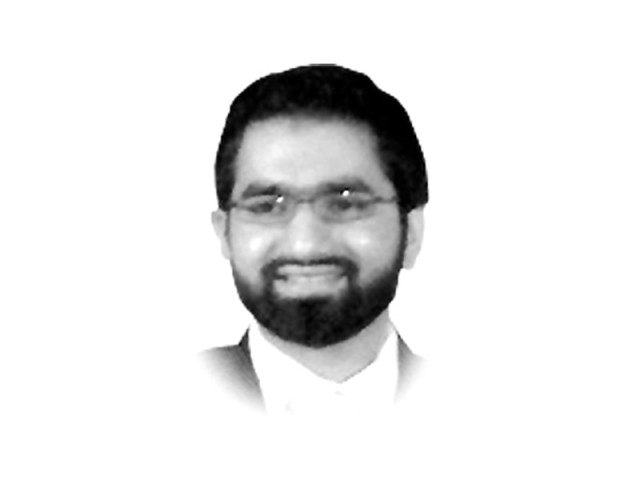Sanctimony
Celebrity driven Ramazan TV shows are latest in series of visible reminders that religion thrives without morality.

Media critics have pounced on the slew of celebrity-driven Ramazan talk shows this year, arguing that these shows are being driven by a morally blind ‘race for ratings’ by TV channels. I’d like to make the case that this is a rather shallow critique of a deeply revealing social phenomenon. Veena Malik isn’t the problem. It’s us.
These Ramazan talk shows are visible symptoms of a larger malaise that lies at the heart of our collective psyche: a seemingly irreversible urge to allow religion to serve as a convenient substitute for our morality.
Blaming the Ramazan shows on the ‘race for ratings’ allows us to avoid the genuinely difficult questions that hold the key to rationally understanding our media landscape. These shows didn’t suddenly drop from the sky. Over time, Pakistani society created the opening needed to blur (read: demolish) the line between religion, entertainment and capitalism. It’s in this socio-religious context that these shows are beginning to thrive.
Perhaps, the most damning aspect of Ramazan television programming is how closely it mirrors Pakistani society. Female anchors suddenly don dupattas as if religiosity is a function of what day of the year it is. Meanwhile, back in real life, traffic policemen refuse to accept bribes only in the holy month.
These actions serve as a window into the psyche of a nation that is desperately clinging onto overt symbols of religiosity, in the hope that it will make up for our appalling decline in moral standards. Thousands of innocent children, women and men die in the name of religion, politics and ethnicity every year. Their deaths barely receive moral outrage from fellow citizens. Instead, there is a numb recognition that this is Pakistan and this is the way things will be here.
Our moral emptiness needs a cover. Something to help us sleep at night. Enter religion.
Religion can be an incredible force for good in society. It can promote tolerance, mutual respect and civic sense. In Pakistan, it seems to provoke the exact opposite. Ask any young man what comes to mind when he thinks of religion and his answer will be something along the lines of praying and fasting. Things like speaking the truth and taking care of your neighbours will follow as an afterthought.
The time has come for a collective recalibration of our moral compass. For a significant number of Pakistanis, religion can play a positive role here. Praying and fasting will always remain central pillars of religion but the Pakistani definition of religiosity (and piety) must be expanded to include our character as human beings.
Acts of worship, such as fasting, can serve as a powerful force for moral discipline. Remember the traffic policeman who refused to take bribes in Ramazan? If religion wasn’t overwhelmingly associated with specific acts of worship like fasting, he would realise that taking bribes isn’t wrong because he’s fasting. It’s wrong because it’s immoral and religion condemns immoral acts, regardless of whether or not you’re fasting.
Pakistan is plagued by a number of socio-economic and political problems. At their core, these macro problems stem from micro moral choices gone wrong. Think about the local politician who would rather use patronage to dole out favours selectively for votes rather than serve the needs of his constituency as a whole. Think about the local businessman who cheats his consumers because he knows the system would allow him to get away with it.
What’s interesting to note is that the forces pushing most vehemently for religion to serve as a panacea for Pakistan’s problems are comfortable with using violence as a means to achieve their ends. This isn’t simply a case of religion coexisting with immoral decisions in society; this is a case of religion existing without morality.
In summary, the slew of celebrity driven Ramazan TV shows this year are simply the latest in a series of visible reminders that religion in Pakistani society can — and at times, does — thrive without morality.
Published in The Express Tribune, August 2nd, 2012.













COMMENTS
Comments are moderated and generally will be posted if they are on-topic and not abusive.
For more information, please see our Comments FAQ